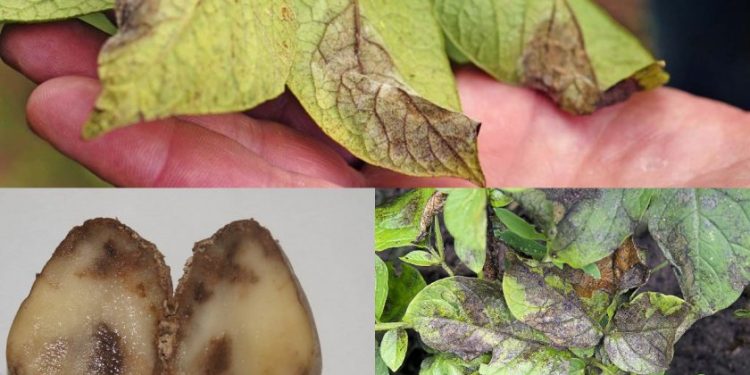ate blight caused by Phytophthora infestans is one of the most destructive plant diseases affecting agriculture worldwide. This article aims to provide insight into the nature and development of this disease, as well as its consequences for farmers and the agricultural industry.
Late blight is a highly contagious disease that affects crops such as potato and tomato. According to recent data from the Food and Agriculture Organization of the United Nations (FAO), the global potato yield loss caused by late blight is estimated to be around 20%. This disease can spread rapidly and cause severe damage to crops, resulting in significant economic losses for farmers and the agricultural industry.
Phytophthora infestans, the pathogen responsible for late blight, thrives in cool and humid conditions, making it a significant problem in areas with wet climates. It infects plants through spores that can be transmitted through the air, water, and infected plant materials. Once it infects a plant, it can spread quickly, causing leaves to turn yellow and blacken, and eventually leading to plant death.
To prevent and manage late blight, farmers and agricultural scientists need to implement measures such as crop rotation, use of resistant cultivars, and timely application of fungicides. The development of resistant cultivars is particularly critical as it provides a long-term solution to the problem, reducing the reliance on fungicides and promoting sustainable agriculture.
In conclusion, late blight caused by Phytophthora infestans is a significant threat to global food security and agricultural sustainability. It is imperative that farmers, agronomists, agricultural engineers, farm owners, and scientists work together to prevent, manage and mitigate the effects of this disease on crops and the agricultural industry.
#LateBlight #PhytophthoraInfestans #Agriculture #PlantDisease #CropManagement #GlobalFoodSecurity #SustainableAgriculture #Fungicides #CropRotation #ResistantCultivars #Farmers #Agronomists #AgriculturalEngineers #FarmOwners #Scientists #FAO #CropDamage #EconomicLosses #Pathogens #PlantHealth






